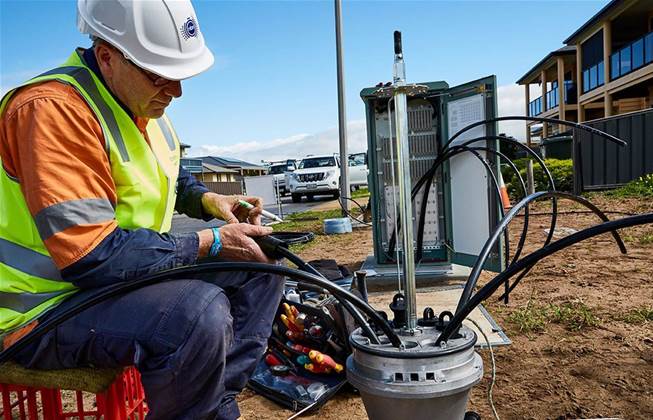NBN Co’s HFC and fixed wireless problems will force the company spend $2 billion more on its rollout, with the total cost now expected to be $51 billion.

The company has also dropped its expected internal rate of return (IRR), from a previous range of 3.2 percent to 3.7 percent, down to 3.2 percent.
“The impact of the HFC pause on deployment profiles, combined with new wholesale pricing bundle discounts, will delay a portion of revenue growth, while further planned investment in fixed wireless capacity has led to increased forecast capital expenditure,” the company said in its new corporate plan.
“As a result, the peak funding has increased to the top of the forecast range at $51 billion, including $1 billion contingency.
“Upon completion of the build, NBN Co will source the additional $2 billion from private sector debt.”
New CEO Stephen Rue confirmed the company would look to "short term private debt", not to the government for additional funding, suggesting the government is standing firm on not wanting to tip any more money into the project.
"The government commitment does not increase," Rue said.
"It's our obligation to go to the market and I think thats a great vote of confidence in the company that we will be doing that."
NBN Co had previously operated under the assumption of a total network cost of $49 billion, with a much higher contingency of $2.3 billion "for unforeseen risks".
The company now has much less contingency built in for any more problems that occur between now and 2020.
Read our other corporate plan coverage:
NBN Co to get three more years to repay $19.5bn govt loan
1.2m premises delayed
The company has also now disclosed major delays to its forecast ready for service numbers.
In the past financial year, NBN Co passed 600,000 users less than it had forecast a year ago - 8.1 million compared to 8.7 million.
Delays are now set to be felt for years to come.
NBN Co said it now expects to have 9.9 million premises RFS at the end of FY19, down from 11.2 million in the previous corporate plan - 1.2 million premises less.
It is now saying it will recover that full shortfall in FY20 to ensure it stays on track with previous forecasts.
Revenue deferred
"Naturally our revenue phasing has shifted in response to the customer experience decisions we made during the last year," CEO Stephen Rue said.
"The HFC pause will have a $700 million impact on revenue within the peak funding period due to deferred activation.
"Similarly the wholesale pricing change, while helping to reduce congestion, is forecast to also result in a $700 million deferral in revenue.
"I want to emphasize the short term nature of this impact. We continue to forecast annual revenues of more than $5 billion per annum from FY21 onwards."
In addition, NBN Co said in the corporate plan that the fixed wireless remediation work is expected to require an additional $800 million in capex.




_(23).jpg&h=140&w=231&c=1&s=0)
_(36).jpg&h=140&w=231&c=1&s=0)





 iTnews Executive Retreat - Security Leaders Edition
iTnews Executive Retreat - Security Leaders Edition
 iTnews Cloud Covered Breakfast Summit
iTnews Cloud Covered Breakfast Summit
 The 2026 iAwards
The 2026 iAwards












_(1).jpg&h=140&w=231&c=1&s=0)



